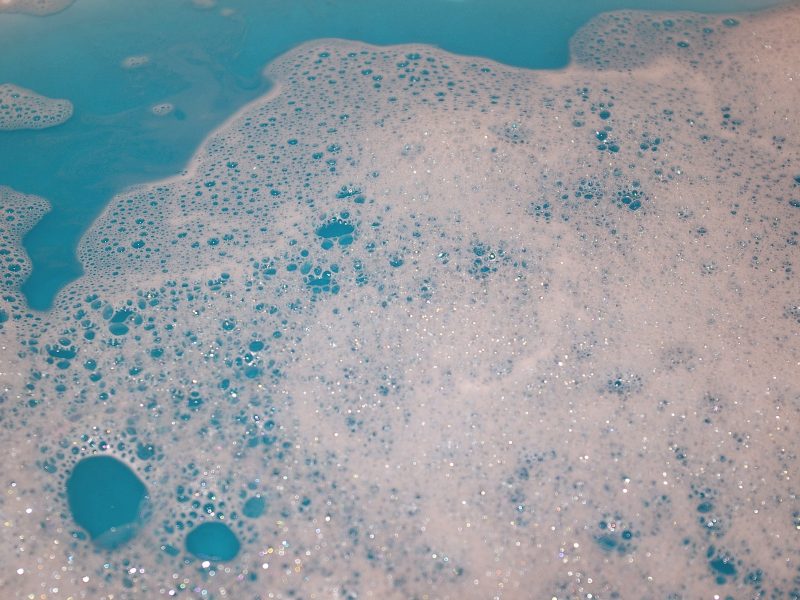How Defoamers Help Improve Performance in Coatings and Paints
How Defoamers Help Improve Performance in Coatings and Paints
Blog Article
The Role of Defoamers in Enhancing Product Top Quality and Efficiency
Defoamers serve as vital ingredients that reduce this problem, making certain smoother production workflows while improving the visual and functional characteristics of the last products. The choice of the ideal defoamer can be crucial to accomplishing optimum outcomes, raising crucial inquiries concerning formulation compatibility and performance metrics that merit more expedition.
Recognizing Defoamers
Recognizing the duty of defoamers is vital for keeping item top quality throughout numerous sectors. Defoamers are chemical additives designed to decrease and avoid the formation of foam in fluid systems, which can negatively impact procedures such as blending, filling up, and surface tension. Foaming can lead to inadequacies, product flaws, and endangered visual charm, making defoamers an essential part in making operations.
In industrial applications, defoamers help to boost product uniformity and stability. The efficient use of defoamers not just guarantees smoother manufacturing processes but also adds to superior item efficiency.
Furthermore, the selection and formula of a defoamer should straighten with specific application requirements, such as compatibility with various other components, performance under varying temperature level and pH conditions, and potential regulative constraints. Inevitably, understanding defoamers' functions and their significance in various formulas is crucial for optimizing manufacturing and making certain the highest high quality output.
Types of Defoamers
Defoamers can be categorized right into a number of kinds based on their structure and system of action. The primary types include silicone-based, non-silicone natural, and not natural defoamers.
Silicone-based defoamers are among one of the most effective, mainly as a result of their capacity to spread out quickly on the liquid surface and interfere with foam formation. Their unique chemical structure permits superior stability, making them suitable for high-temperature applications and atmospheres with differing pH degrees.
Non-silicone natural defoamers, frequently composed of natural oils or fats, are valued for their biodegradability and reduced poisoning. These are commonly utilized in food and drink applications where safety and security and ecological influence are paramount.
Inorganic defoamers, which include materials like talc or calcium carbonate, act by raising the thickness of the fluid, consequently reducing foam stability. They are frequently utilized in industrial procedures where compatibility with various other products is not a worry.
Each kind of defoamer has distinct advantages and limitations, enabling customized remedies relying on the particular foaming issues encountered in various applications. Recognizing these distinctions is critical for maximizing efficiency and achieving preferred item quality.
Applications Across Industries
Various industries take advantage of defoamers to enhance item quality and operational efficiency. In the food and beverage market, defoamers are vital in procedures such as developing and milk production to stop foam development, which can bring about inadequacies and item disparity. By controlling foam, manufacturers can ensure far better return and an extra consistent item.
In the pharmaceutical market, defoamers play a crucial function in the solution of liquid medicines, where too much foam can impede mixing and precise dosing. Their usage aids preserve the integrity of the formulations and helps with smoother manufacturing processes.
The paint and layers sector additionally counts on defoamers to improve the efficiency of products during application. By lessening foam, these ingredients make certain a smoother coating and boost the visual qualities of the final item.

Benefits of Utilizing Defoamers
While the application of defoamers varies throughout sectors, their benefits regularly improve item quality and procedure efficiency. One considerable benefit is the reduction of foam development during producing processes, which can otherwise lead to production hold-ups and inconsistencies in item quality. By minimizing foam, defoamers enable a smoother flow of products, promoting a lot more efficient procedures and lowering the possibility of devices breakdowns.
In addition, using defoamers can enhance look here the appearance and appearance of end products. In markets such as coatings, paints, and food processing, excessive foam can endanger the aesthetic looks and general top quality, while the appropriate defoamer application guarantees an uniform surface and preferable features. Furthermore, defoamers can add to set you back financial savings by reducing waste throughout production and maximizing making use of basic materials (defoamers).

Picking the Right Defoamer
Picking the ideal defoamer is important for enhancing production processes and making sure item top quality. The selection of defoamer affects not just the performance of foam control but likewise the general performance qualities of the end product. Variables to take into consideration consist of the kind of application, the chemistry of the formula, and the environmental conditions under which the product will certainly be made use of.
Different industries might call for details defoamer kinds, such as silicone-based, organic, or polymeric defoamers. Comprehending the compatibility of the defoamer with the primary active ingredients is vital to avoid adverse responses that might compromise item stability. Furthermore, the defoamer's effectiveness in numerous temperature levels and pH levels have to be reviewed to make certain constant performance.
Evaluating the defoamer in small-scale applications can provide useful insights into its efficiency and suitability. Factor to consider of regulative conformity, especially in food, drugs, and cosmetics, is paramount in choosing a defoamer. Inevitably, a thorough evaluation of these variables will cause the selection of a defoamer that not only controls foam successfully yet also improves the top quality and efficiency of the last product.
Final Thought

Finally, defoamers are essential ingredients that significantly improve item high quality and efficiency throughout numerous industries. By efficiently minimizing foam development, these agents not only improve operational effectiveness however likewise add to the visual and practical integrity of products. The calculated option and application of defoamers bring about set you back financial savings, maximized resource use, and increased customer fulfillment. Generally, the value of defoamers in commercial processes can not be overemphasized, as they play an essential duty in attaining premium and constant outcomes.
Frothing can lead to ineffectiveness, product defects, read what he said and compromised visual charm, making defoamers an important element in manufacturing procedures.

Report this page